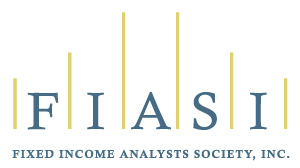
April 13, 2023
Andrew Auslander, CFA, FRM, NACD.DC
Henry Shilling, a board member of FIASI (Fixed Income Analysts Society, Inc.) and the founder of Sustainable Research and Analysis LLC and I had a chance to speak with John Finnerty, Professor of Finance at Fordham University and founder of Finnerty Economic Consulting. Professor Finnerty is completing a book about how businesses can manage their climate change risk exposure. Henry and FIASI colleagues have organized a fixed income-oriented full day event, Sustainable Finance in Fixed Income – Risks and Opportunities in 2023, which will be held at the McNally Amphitheater , Fordham University on April 20, 2023. Professor Finnerty will be moderating an energy transition panel with experts from S&P Global, Fitch Ratings, Schroders and MSCI at this event. To sign up, please go to https://www.fiasi.org/sustainable-finance/esg-2023.
John, the 2023 Economic Report to President Biden warns of economic, financial, and social risks to the U.S. economy due to climate change. Can you comment on these risks?
John: The economic report to the President demonstrates that climate risk is a major part of modern risk management. When analyzing the impact of climate change on an entity’s credit, fixed income investors should analyze the following components of climate-related risk: Physical risk due to climate change, transition risk, disclosure risk, legal risk and reputational risk. Credit analysts should also consider the business opportunities to which climate change will give rise and assess how a business entity’s ability to pursue such opportunities might enhance the entity’s credit.
Transition risk is a big risk for producers in certain industries, i.e., cement and fossil fuel producers, as the cost to migrate from climate polluters that are low-cost providers to efficient producers could run in the billions of dollars. Disclosure risk is also important as the SEC proposed disclosure rules in response to what institutions and investors want to know: Comprehensive (scope 1, scope 2, and scope 3 emissions), comparable across companies, industry-specific, and require full disclosure in SEC filings to make securities issuers accountable. Various interested entities, including, for example, the Plaintiffs’ Bar and NGOs, will be watching these disclosures closely and any perceived defects could lead to legal and reputational risk.
In what way, if any, are the findings set out in these reports likely to change the way analysts account for transition and physical risks in their equity valuations and bond risks?
John: Credit analysis is likely to become more granular. While climate change contributes to systemic risk, when individual companies are evaluated for both physical risk and transition risk due to climate change the issues are largely idiosyncratic (about 75% to 95% according to recent research). Careful credit analysis requires a lot more than just considering a few overall ESG ratings. A deeper entity-specific credit analysis is required.
John, Can you please provide additional comments on the SEC’s proposed rules for climate related disclosures by public companies?
John: It is important that the disclosures be comparable across companies. Hopefully, the SEC will provide templates for the reporting companies that will allow analysts to compare companies more easily in the same industry for climate change factors. Ideally, these templates should be industry specific as a manufacturing company has a very different profile from a financial services company. It is also important that these disclosures become part of a publicly listed company’s 10-K and 10-Q filings so the information is credible and can be relied upon.
What about disclosures for municipal entities?
John: Municipal climate-related disclosure can also be improved. But the disclosure standards will be different because government entities are unlike commercial entities. Nevertheless, the same basic principles I articulated in answering the previous questions should still apply.
I look forward to hearing more about sustainable issues at the conference. Bob Litterman, Ph.D. will be the keynote speaker at the conference, addressing climate risk management and the newly launched Kepos Carbon Barometer. There will also be an in-depth discussion of the economic impact of the Inflation Reduction Act (IRA) of 2022. To sign up for the this can’t miss event, please go to https://www.fiasi.org/sustainable-finance/esg-2023.
Andrew Auslander is the founder of Agile Financial LLC which provides financial consulting and expert witness services. He provides risk management, credit infrastructure and valuation services.








